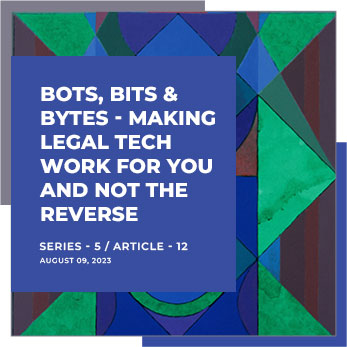Ships backed up at ports, store shelves poorly stocked, and in general, various shortages of what businesses need to function, which have not been seen in decades, except for office space.
Sometimes, there can be ‘too much of a good thing’, with law firms experiencing this phenomenon as they wonder how long everybody will be stuck working from home and what to do with all that unused space.
Flash Drive versus ‘Flash’
Two years ago, law firm rentals accounted for almost 6 percent of all office leases in the US, and in some markets, such as Manhattan, the largest square feet leases signed were by law firms. But, despite the ongoing debate about the ‘trends’ in the real estate industry and legal profession. Upsizing or downsizing in many law firms have caused fewer square feet in a law office to be allocated on a per-attorney basis than a decade ago. This was the case even before the pandemic.
A primary reason cited for this is the near-elimination of the venerable on-shelf Law Library, stacked with tomes of not only jurisprudence but also ‘flash’ intended to impress the most discriminating clients. In place of floor-to-ceiling stacks of thousands of bound volumes are simple flash drives or volumes of cloud storage, none of which command the use of premium office space rental.
The shift to the electronic file cabinet holding the digitalized record of thick file folder contents has also impacted the reduction in space needs. Law firms no longer require file rooms for record storage, another archaic waste of valuable space.
Enter the Pandemic
But, despite the revised calculations about the attorney space needs due to technological advances, there is no denying that the COVID-19 pandemic has sent hundreds of thousands even millions of workers home who would otherwise be filling their allocated spaces. And, just when you thought it was safe to go back to work or at least the management thought so the latest Omicron variant wave has thrown a wrench into these plans.
California-based Cooley LLP, an international law firm with 17 offices globally, anticipated a return-to-work date at the end of 2021 but has now informed its staff that they will not be required to work in-house until at least April 2022. Meanwhile, a top-tier Boston firm has given up on trying to ‘guesstimate’ the formal return date and has now taken a month-to-month assessment approach. And in late December 2021, Quinn Emanuel Urquhart & Sullivan, LLP, became the first firm to announce a ‘Work from Anywhere’ policy. Worldwide, law firms have successfully pivoted to work-from-home functionality out of necessity. Still, most plan on maintaining some semblance of that approach, or perhaps a hybrid system, going forward.
How much Space is really Empty?
Believe it or not, in 2018, long before the pandemic, an ‘office use’ study quoted in Inc. Magazine recited data saying ‘as much as 40 percent of an office’s dedicated desk space sits unused on a given day. Employees are on vacation, working a flexible schedule, or stuck in back-to-back meetings’. Fast forward to the middle of the pandemic, when a British study discovered that London offices are using only desks 28 percent of the time, equating to a 72 percent rate of wastage. As a result, unused desks could cost businesses £12.84 billion (more than 17 Billion USD). This translates into 72 percent of all London office rent paid by businesses being spent on empty desks..
Cold Market Hot Desks
So, what are the solutions for law firms and other businesses with a 72 percent “vacancy” rate? Among the creative arrangements that have come into vogue are the practices of ‘desk hoteling’ and ‘hotdesking.’ The latter is a space-sharing system whereby employees choose any available desk space when they arrive at work the former is a reservation- based system that allows employees to formally reserve their workstation, somewhat like reserving a hotel room.
Another solution is timesharing’. Think ‘timeshare’, think vacation condo time-slot, right? But the concept has now been expanded to include office space waiting to be used by renters who know they will need a space every Tuesday or Thursday from 1 pm to 5 pm, for example. Such limited—albeit regularly scheduled—hours hardly justify signing the type of year- round lease most lessors demand. But spread out over a five-day work-week or more, an office manager may be able to profitably fill up their 72 percent unused spaces or at least significantly reduce those operating losses. One London prototype timeshare arrangement reduced office costs by 60 percent with no need for a ‘fit out’.
Conferences and Events
Some office managers have shifted from truly professional use of their space altogether, offering re-configured and re-fitted rooms as suitable all-day conference centers. It is true that most such gatherings, which were held in person, are now arranged via Zoom or similar team platforms. However, it is not uncommon
for the podcaster to assemble with a core group of attendees even though the podcast is disseminated electronically to scores of other viewers.
Other events such as workshops, product unveilings, investment promotions, shareholder meetings, book launches, and similar business encounters can also be held in the firm’s multi- use spaces set aside for these purposes.
Of course, as noted in our previous article, attorneys must always be mindful of the ethical considerations of sharing space with non-attorneys or even the risk of exposing work involving attorney-client confidentialities to public visitors.
The Future of Law Space
By November 2020, Sherry Cushman, Vice Chairperson of real estate services at Cushman & Wakefield, noted, “There’s going to be a lot of exploration, and some firms will be incredibly progressive and set the stage for the future of law.” Although historically, legal professionals have not been ‘early adopters’ of changes embraced by other industries and businesses, the current over-supply of space crisis leaves them with no choice but to embrace creative solutions.
“PARALEGALS ARE OFTEN HIRED FOR INTENSIVE SUPPORT ROLES WITHIN AN ATTORNEY’S CASELOAD….….
…A WIDE RANGE OF TRULY SUBSTANTIVE LEGAL WORK CAN NOW BE LAWFULLY ASSIGNED TO A PARALEGAL”
Executive Summary
The Issue
How to resolve the unused office space crisis that is seriously bleeding the bottom line of operations costs as related to monthly rent?
The Gravamen
Law firms must face the reality that traditional work-site arrangements where ‘only’ 40 percent of desk space sat unused at a given time are a thing of the past. In reality, not all employees will be returning to full-time in- office work arrangements.
The Path Forward
A combination of employee hoteling, hotdesking, and outside use of a firm’s unused office space will need to be crafted if a firm cannot downsize due to lease terms or other considerations.
Action Items
Analyze your needs:
A thorough analysis of how much space is unoccupied and why requires a careful examination.. If it is solely due to the traditional factors of employees being ‘out of office’, that is one consideration. However, if the percentage of unused space is comparatively extraordinary due to the pandemic or employee needs, then more serious future planning is in order.
Poll your employees:
When working with HR, determine the sentiments and/or intentions of employees who are currently working at home. Although the ‘tail should not wag the dog’ when it comes to employee policy, it is always advisable to listen to what employees are saying for the benefit of good employee relations.
Explore rotational use:
always be some employees who work best ‘in their own space’ and will feel more connected to their work if they know the firm has a dedicated place for them.
Study other creative scenarios:
Test the waters as to whether timesharing, conference-centering, investor promotions, shareholder meetings, and other uses that are not traditional law firm functions will work for you.
Study ethics considerations:
A comprehensive review of your state’s ethics considerations and ABA Model Rules governing space sharing should be undertaken in order to avoid running afoul of such requirements that the lawyer is bound to uphold.
Further Readings
- https://www.quinnemanuel.com/the-firm/news-events/quinn-emanuel- tells-its-lawyers-work-from-anywhere/
- https://www.entrepreneur.com/article/373813
- https://www.wealthmanagement.com/office/law-firms-are-dumping- significant-amount-office-space
- https://news.bloomberglaw.com/business-and-practice/cooley-says-law-
yers-can-stay-out-of-offices-until-at-least-april - https://www.abajournal.com/magazine/article/thanks-to-the-covid-19- pandemic-law-firms-are-starting-to-embrace-virtual-officesbut-will-it- last
- https://www.2civility.org/law-firms-downsize-office-space-amid- covid-19/







